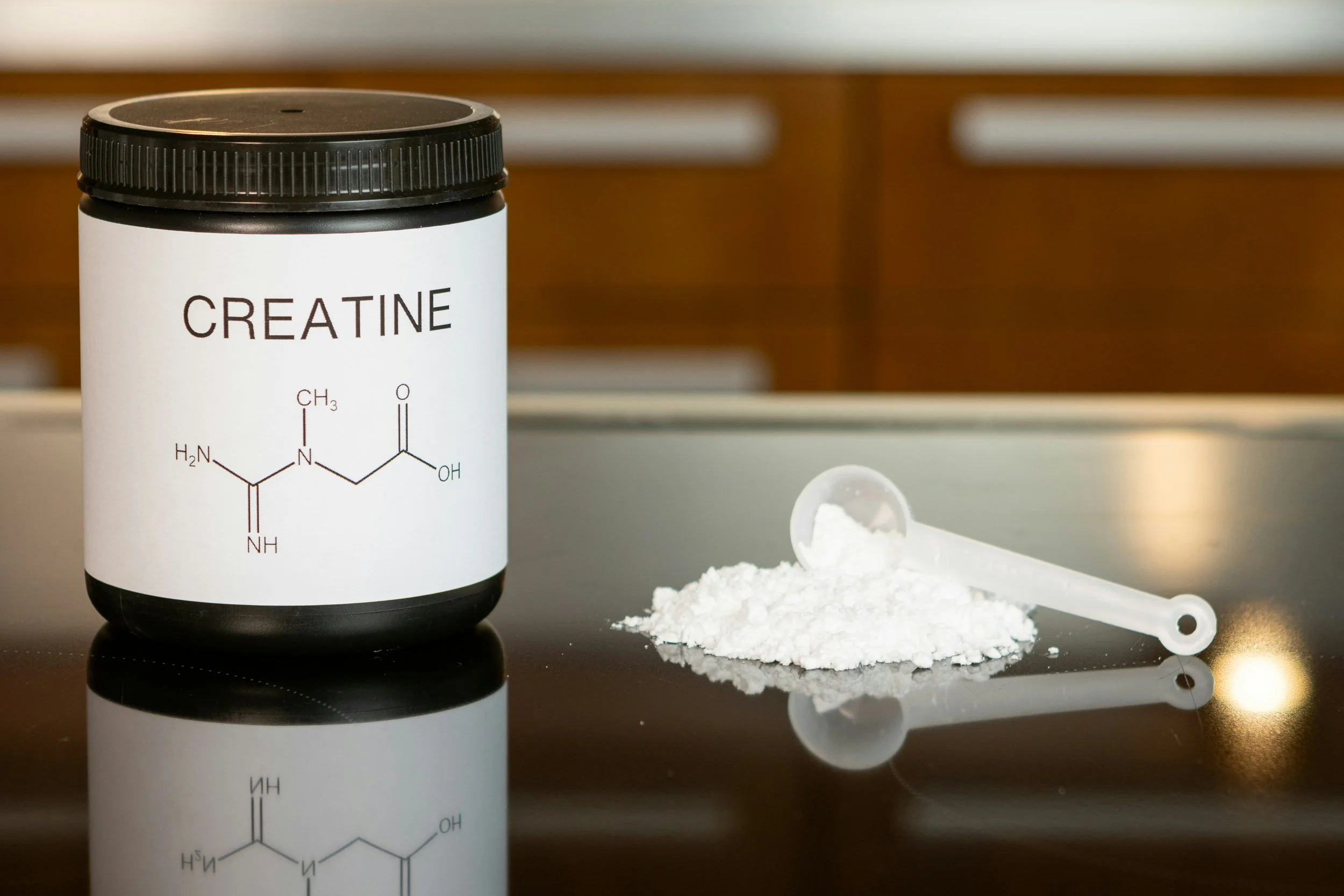The Strength, Brain, and Longevity Supplement You’re Probably Missing
For years, creatine has been lumped into the category of “gym bro supplements”—something taken to bulk up or power through endless sets in the weight room. But science has come a long way, and it shows that there's a lot more to it than just the gym. Today, creatine is gaining attention for much more than just muscle.
Backed by decades of research - and a wave of recent studies (because they're trying to find a downside!) - it’s now being recognized for its cognitive benefits, potential neuroprotective effects, and support for healthy aging. So, if you care about performance, brain health, recovery, or longevity, it might be time to reconsider.
“Creatine acts like rocket fuel for both muscles and the mind.”
The Powerhouse Behind Strength and Recovery At its core, creatine is a naturally occurring compound found in our muscles and brain. It helps your cells rapidly produce ATP, the primary form of energy used during short, intense efforts—like sprinting, lifting, or high-intensity intervals. While we get some creatine from food (mainly red meat and fish), most people don’t consume enough to saturate their muscles and brain fully. Supplementation can bridge that gap.
For those who train regularly - especially in sports like weightlifting, CrossFit, rugby, or sprint-based activities — creatine has been shown to significantly increase strength and power output. Studies have also confirmed it supports lean muscle gains, WITHOUT any of the bulky side effects many women fear.
“Progressing in the gym means recovering well - creatine helps to speed things up.” More than just performance, creatine also improves muscle recovery, helping to reduce soreness and inflammation. This can make a major difference for athletes or active individuals who train multiple times per week. It can also help recovery time BETWEEN sets, which means you can get more done in a shorter space of time, or just more done in general.
Fueling the brain Perhaps the most exciting thing to come out of creatine research is its link to cognitive function. While the brain makes up only 2% of body mass, it consumes around 20% of the body’s energy. Creatine helps ensure the brain’s energy needs are met, especially under stressful conditions like sleep deprivation, mental overload, or neurological stress.
Recent studies show that creatine supplementation can improve short-term memory, decision-making, and mental clarity - even in healthy adults. In sleep-deprived athletes, including elite rugby players, creatine helped maintain reaction time and passing accuracy. In high-pressure environments, that kind of cognitive edge can be the difference between success and failure. “Creatine powers your brain as much as your body.”
Concussion and Brain Injury: Creatine’s Protective Potential In high-contact sports like rugby or football, concussions are a real concern and researchers are starting to explore creatine’s potential in supporting brain injury recovery. Animal studies have shown creatine can reduce the extent of brain damage following trauma, and early human trials suggest that creatine supplementation post-concussion may aid in cognitive recovery and reduce symptom duration.
Some sports dietitians are now recommending high-dose creatine (10–20 grams daily) after concussion to help replenish the brain’s energy stores more quickly—something that could have major implications for athlete safety and recovery. “Think of creatine as a helmet for your brain—from the inside out.”
Even more brain beneifits - Creatine supports brain health and aging The potential benefits of creatine extend well beyond sport. As we age, we naturally lose both muscle mass and cognitive function. But creatine may help slow those declines. A 2024 pilot study found that adults with early-stage Alzheimer’s who took 20 grams of creatine daily for eight weeks showed measurable improvements in memory and executive function. The same study found an 11% increase in brain creatine levels—suggesting the supplement is actually getting to the brain and having an effect.
Other research in older adults has found that creatine supplementation, especially when combined with resistance training, can help preserve both physical function and mental performance. It's emerging as one of the most promising low-cost tools for healthy aging.
But is it safe to take? Creatine is among the most extensively studied supplements on the planet. Over hundreds of studies spanning more than 30 years, it has consistently been shown to be safe for healthy individuals. It doesn’t interfere with hormones, won’t cause water retention in the long term, and is kidney-safe at recommended doses.
For most people, a daily dose of 3–5 grams of creatine monohydrate is enough to see benefits. For brain health or concussion support, short-term higher doses (10–20 grams) under professional supervision may be more appropriate.
It’s also vegan-friendly, since creatine monohydrate is synthetically produced, and extremely cost-effective—usually around €0.30 to €0.50 per serving.
A Smarter Supplement Strategy Creatine isn’t flashy, expensive, or overhyped. But it works. For people who want to perform better, think faster, recover smarter, and age more gracefully, creatine is a simple, science-backed tool with big returns.
The best part? You don’t have to be an elite athlete to benefit.

